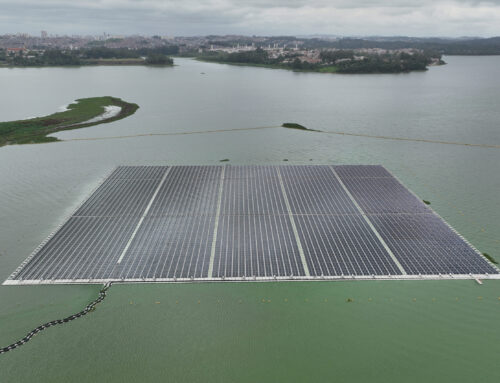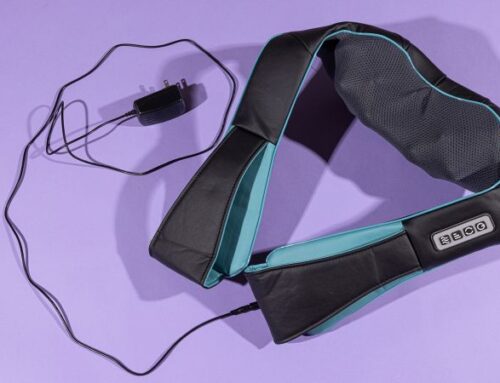She stood up for science despite White House pressure. This Louisianan is now being recogn
November 28, 2025
Virginia Burkett faced the most egregious instance of political interference in her scientific career seven years ago, she said, when political appointees during President Donald Trump’s first term tried to alter the country’s pre-eminent climate change report.
As a top scientist at the U.S. Geological Survey, Burkett had already served as lead author on the first, second and third National Climate Assessment, as well as four United Nations climate change reports. Thirty years prior, she had been the first woman to run a state wildlife agency when she helmed Louisiana’s Department of Wildlife and Fisheries. It was hardly her first rodeo confronting influential figures.
“From those early experiences starting in the late 70s and early 80s dealing with coastal impacts here in Louisiana, I found that when scientific findings collided with the financial interests of powerful corporations and politicians, that scientific integrity could be threatened,” Burkett said at a hotel patio in the French Quarter on a recent visit, before returning home to Sabine Parish.
But in 2018, the coastal wetlands ecologist refused to compromise her values and downplay the impacts of climate change in the report, she recalled. She convened a meeting with White House officials and maintained that the alterations would undermine the report’s integrity. She told them that if they changed the findings, her team would have to go back out for peer review.
“The agency scientists stood together and, in the end, the climate assessment was published as written,” she said.
Burkett’s commitment to her science landed her an international award last month from the publishers of the journal Nature. The John Maddox Prize recognizes researchers who “stood up for science and advocated for evidence-based discussion in public policy,” organizers say. The two other winners hail from Chile and Australia.
“The Maddox Prize highlights the damage done to society when good research is suppressed and when scientists are intimidated from contributing to public discussion,” said Tracey Brown, a judge for the award. “This year’s courageous winners have insisted on the public’s access to evidence.”
Burkett said the award is both “vindication and encouragement.”
“To me, it represents that you can get past all of the hostility, the retaliation, the harm to your career and just keep going,” she said of the award.
The recognition caps an extraordinary career that saw her help shape the world’s understanding of climate change and other scientific developments, often working from the small town of Many, Louisiana. She was also involved in key early research into Louisiana’s land loss crisis.
And, if that’s not enough, she’s a licensed pilot, too, who would sometimes commute to work in Lafayette by plane.
‘The most painful thing’
Burkett’s efforts during the first Trump presidency were successful, though she says they came with a cost.
In a whistleblower complaint last year, she describes how she became a target: demoted and removed as chair of the U.S. Global Change Research program overseeing the climate assessment. Her department at the USGS, responsible for all climate science and land use change research at the agency, was dismantled as part of a larger attack on climate science.
Under the Biden administration, Burkett’s title was restored, and she continued climate change research. But in July, the Trump administration shuttered the global change program.
Beyond the retaliation, harassment and hostility toward her, Burkett said that “the most painful thing I experienced was the dismantling of the critically important climate-related research and expertise.”
David Reidmiller, who was hired by Burkett in 2016 and directed the fourth climate assessment from a role at the White House, was in charge of writing the executive summary of the report that some political appointees were “attempting to water down,” he said. He described Burkett’s removal as “a loss for the program.”
“She was not only a staunch defender of the work but was really thoughtful in her approach and had a lot of experience with coastal issues and ecosystems,” said Reidmiller, who now works at the Gulf of Maine Research Institute.
A spokesperson for the USGS declined to comment on Burkett’s treatment or the issues raised in her whistleblower complaint.
A stiff spine…and a pilot?
She retired earlier this year and now serves as an emeritus scientist at the USGS. She still lives in Many, a town of around 2500 in Sabine Parish, where her husband Don Burkett has served as district attorney for over 40 years. Virginia Burkett was born in Jackson and grew up in Biloxi, but she’s made Louisiana her home.
Her first job out of college was as a research scientist at LSU Sea Grant, documenting changes in coastal salinity. She later worked at the Louisiana Geological Survey, when the state’s coastal land loss crisis was beginning to gain wider notice, recalled Donald Boesch, a marine scientist and New Orleans native who has been recognized internationally for his scientific achievements. Boesch and Burkett worked together during those early years.
“Even back in those early days when I started and first knew her, she was always remarkably composed,” Boesch said. “She’s got a stiff spine and stands up for principles.”
Her ascendance as director of the fish and wildlife service was rare, Boesch said, as the agency was an “old boys’ gun and bullet crowd.” Burkett introduced new thinking and reforms to the agency during her two years in the position.
“I can only imagine she was a significant role model for others in the field,” Boesch said.
Boesch and Burkett would continue collaborating throughout their careers, during the first national climate assessment in the late 1990s, the state’s coastal master plan and subsequent studies documenting the importance of reducing emissions to help preserve Louisiana’s coast.
After her stint in state government, Burkett began working at the National Wetlands Research Center in Lafayette, part of the USGS. Her former boss, Bob Stewart, said hiring her “was one of the best decisions” he ever made. He tried to encourage her over the decade and a half that they worked together, including supporting Burkett’s choice to get her PhD in forestry and pursue her pilot’s license.
She eventually started commuting to Lafayette from Sabine Parish – by plane.
“It’s hard being a woman pilot, by the way, because the guys don’t treat her that well,” Stewart said.
Following her work at the wetlands research center, Burkett assumed a series of roles within the climate and land use change division at the federal agency, culminating in her position as chief scientist. She rented an apartment in Washington D.C. for a couple years, then worked remotely from Many.
“I don’t know how she pulled it off, but she’s managed to do this national role from very remote Many, Louisiana,” Boesch said.
‘Stay the course’
Burkett said that family and faith have been extremely important to her during the “intense hostilities” she faced at the federal government.
“My wife Virginia is one of the most ethical, hardworking people you will ever meet, and she takes her job very seriously, so it was extremely stressful for her, what she was put through,” Don Burkett said.
She never considered giving in to the pressure to change the reports. Demotion is less important than compromising your values, she said.
During her speech in London at the ceremony for the John Maddox Prize, Burkett offered advice to scientists under threat, such as finding allies and keeping records of “even the most subtle attempts to inappropriately alter your work.” Her final piece of advice was to prepare for setbacks and push forward anyway.
“Stay the course,” she said.
Search
RECENT PRESS RELEASES
Related Post




